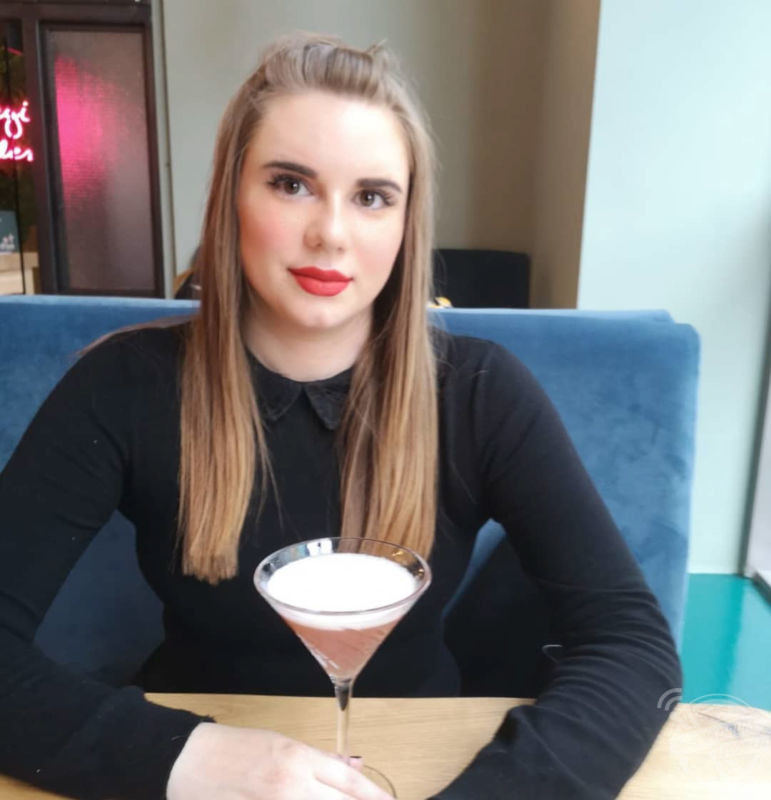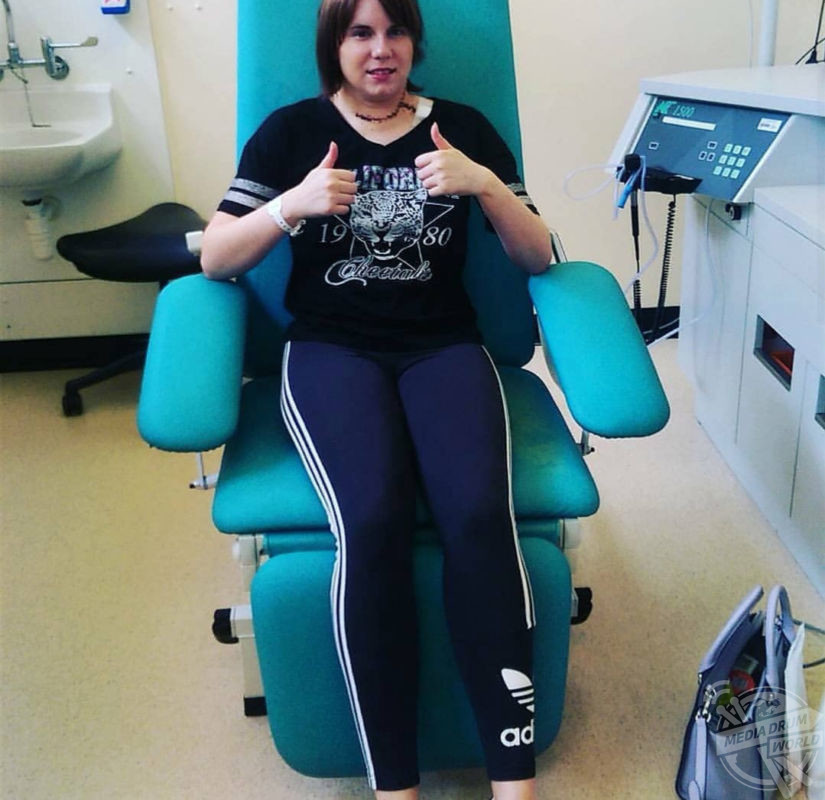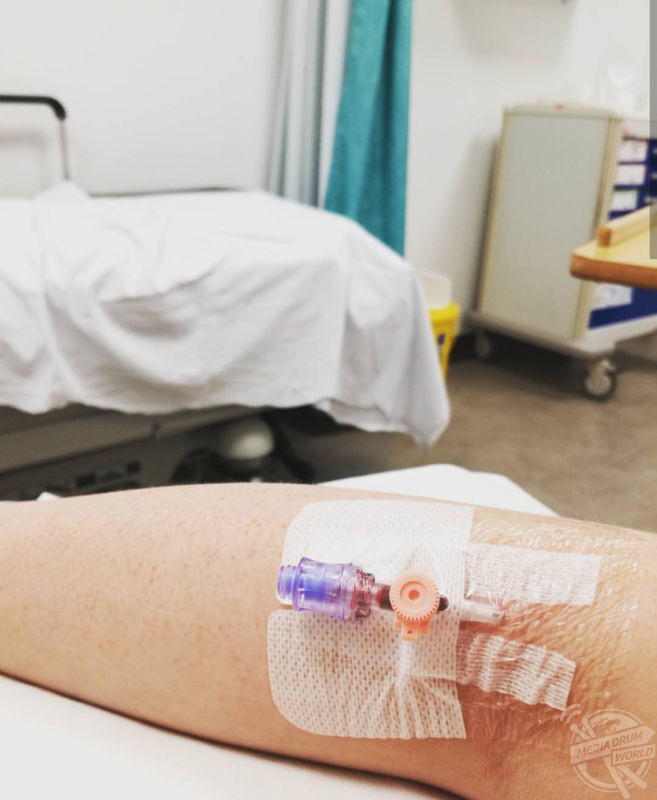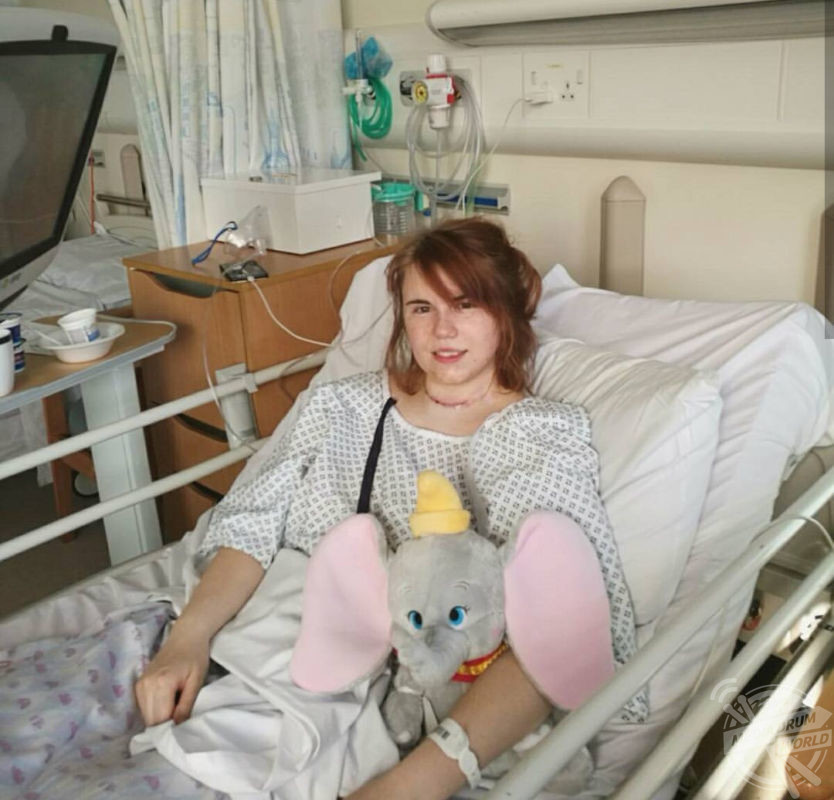
By Alyce Collins
THIS WOMAN was made to feel like a HYPOCHONDRIAC by her doctor after being continually turned away for THREE YEARS before she finally had the LUMP on her neck tested and was diagnosed with THYROID CANCER.
Criminology PhD student, Rebecca Hetherington (29) from Newcastle Upon Tyne, UK, started noticing changes to her appetite as early as 2013 as she was eating less and was also regularly coming down with colds.
By 2014, Rebecca was convinced there was something wrong, so she visited her GP but was turned away on numerous occasions because they believed she was fine and healthy. After repeatedly having her symptoms played down, Rebecca cried in a handful of her appointments because she felt so confused as to why she was feeling the way she was if there was nothing wrong.

At the end of 2015, Rebecca noticed a small lump in her neck, which she initially thought could be a sign of a throat infection or a virus, but as the months passed and the lump grew, Rebecca’s concerns began to rise. She started to believe it could be lymphoma because she was also experiencing frequent night sweats and pain in her armpit, which she’d read were signs of lymphoma.
The night sweats were happening weekly from 2014 but by 2016 they were every night and Rebecca often had to change her pyjamas and bedding as a result. Not wanting to give up, she made another GP appointment for April 23, 2016 and fortunately she was seen by a locum GP that time who acknowledged her concerns and referred her for an ultrasound and fine needle aspiration to diagnose the lump.
On May 17, Rebecca was diagnosed with stage two metastatic papillary thyroid cancer, which they estimated she’d had for three years as it had spread to approximately 40 lymph nodes. She underwent a thyroidectomy and neck dissection, before starting the highest dose of radioactive iodine treatment and spending five days in isolation in a lead-lined room as she was dangerously radioactive.
“I started to realise something was wrong around 2013 when I started to feel fluey and had appetite changes.

“In 2014 I then developed constant thrush and had skin and hair changes as well. This continued to worsen all the way up to 2016.
“I experienced weight changes, heat intolerance, night sweats, chronic thrush, groin pain, armpit pain, neck pain, fevers, sore skin, stomach pain, regular vomiting, developed asthma and alcohol intolerance.
“I was convinced something was wrong but was regularly told there wasn’t. For two years I was going back and forth to my GP, even when I developed a lump in my neck.
“Frustrated doesn’t even cover it, I would regularly cry in my appointments because I was so confused as to why I was feeling the way I was if there was nothing wrong. Constantly being told it was caused by anxiety, I felt like they thought I was a nuisance and a hypochondriac.
“I started to notice the neck lump towards the end of 2015, but it became more prominent after the new year, and by May 2016 it was very visible. I developed a secondary lump near my collarbone too.
“At first, I though perhaps it was a throat infection or virus, but after a few weeks I became very worried it was lymphoma because of the armpit pain and night sweats, which are classic lymphoma signs. The lump looked quite flat but covered a large area of my neck, around 10 centimetres wide.

“The night sweats happened quite regularly at first, weekly from around 2014 but by 2016 it was nightly. I had to change my pyjamas and bedding regularly.
“Finally, due to an appointment with a locum GP, I was sent for an ultrasound and fine needle aspiration. I was pleased I was finally being taken seriously, but she seemed very concerned, so that scared me. I had been ill for years by this time, so whatever it was, I was worried it had spread.
“I had ultrasounds, an appointment with an ENT consultant and then a fine needle aspiration before being diagnosed with stage two metastatic papillary thyroid cancer in May 2016 which they estimated I’d had for three years.
“I was shocked, I’d been mentally preparing for cancer, but I was sure it was lymphoma, so the cancer diagnosis wasn’t what shocked me, but hearing it was in my thyroid was. I had never heard of thyroid cancer.”
Rebecca had a thyroidectomy and neck dissection in July 2016, but unfortunately the surgery caused many repercussions, including nerve damage in her jawline and hypocalcaemia. On September 5, Rebecca started a round of radioactive iodine treatment because the cancer had spread to her lymph nodes, tissue and parathyroid glands.

Rebecca is monitored every three months for cancer recurrence, and in June 2017 she was found to have residual cancer and required a second neck dissection. Rebecca is still not classed as cancer free and has regular scans.
“I had a thyroidectomy and neck dissection in July 2016 because my cancer had spread to around 40 lymph nodes and one parathyroid gland. I suffered nerve damage that still bothers me today in my jaw and down my left arm,” said Rebecca.
“I still have no feeling in my jaw or ear on the left side, and weakness in my arm and shoulder. I then developed severe hypocalcaemia because my parathyroid glands were removed and damaged, so my body is unable to regulate its own calcium, vitamin D or magnesium. So, I now rely on medication to keep the levels stable. I had around 30 staples in my scar which were removed without anaesthetic a week after my surgery.
“I then received the highest dose of radioactive iodine and was put in a lead-lined room in hospital for five days due to how radioactive I was.
“I was nervous to swallow the iodine because no one can touch it, so you have to swallow it through a metal straw to avoid the radiation being opened before it hits your stomach. After the first day or two, when the swelling of my face, taste of metal and vomiting had died down, I was able to use my laptop for university work, which was a good distraction.

“Almost a year later, I underwent a second neck surgery for residual cancer. It was a much shorter surgery and went very well. Even after all of that, I’m still not cancer free and am monitored every three months.
“I had never heard of thyroid cancer before I was diagnosed, and if anyone out there is experiencing symptoms like mine, I want to encourage people to not give up if they feel something is wrong, even if your GP says you’re fine.
“It doesn’t matter what your doctors say, or how old you are or what your family history is, cancer can affect anyone. If you feel like something isn’t right, do not back down. Only you know your own body, so don’t let someone else tell you that it’s in your head or that you’re fine when you don’t feel fine. Always push for answers, your health is too precious.”
To see more, visit www.instagram.com/thycaspoonie5






